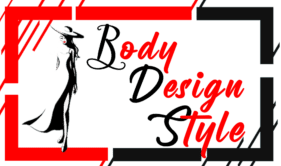Key Takeaways:
- Many clothing brands rely on cheap labor from developing countries, leading to unethical working conditions and low wages for garment workers.
- Consumers have the power to support ethical fashion by choosing brands that prioritize fair labor practices and transparency in their supply chains.
- Labor rights organizations play a crucial role in advocating for better working conditions and fair wages for garment workers.
- The fast fashion industry’s emphasis on quick production and low prices contributes to the exploitation of labor, encouraging a cycle of disposable clothing and environmental degradation.
- Educating oneself about the labor ethics behind clothing can help consumers make informed choices and contribute to positive change in the industry.
Key Labor Ethics Concerns in the Clothing Industry
The clothing industry is plagued with several labor ethics concerns that have gained significant attention in recent years. One of the main concerns is the issue of low wages and poor working conditions for garment workers. Many workers, especially those in developing countries, are paid extremely low wages that do not provide a decent standard of living. They often work long hours in unsafe and unsanitary environments.
In the Spotlight
Another concern is the prevalence of child labor in the clothing industry. Children are often employed to perform hazardous tasks and are deprived of their right to education and a normal childhood. This exploitation of child labor is a violation of international labor standards and human rights.
Furthermore, there is a lack of transparency and accountability within the supply chains of clothing brands. Many brands outsource their production to subcontractors or factories without properly monitoring or ensuring ethical practices. This lack of oversight allows for unethical practices such as forced labor, discrimination, and harassment to persist.
The Evolution of Labor Ethics in the Clothing Industry
Labor ethics in the clothing industry have evolved over time due to increased awareness and advocacy efforts by various stakeholders. In the past, labor exploitation was rampant as companies prioritized profit over worker welfare. However, with growing public pressure and scrutiny, there has been a shift towards more ethical practices.
One major development has been the establishment of codes of conduct by many clothing brands. These codes outline minimum standards for labor conditions and are meant to ensure that workers’ rights are respected throughout the supply chain. Additionally, some brands have started conducting audits or inspections to monitor compliance with these codes.
Moreover, consumer demand for ethically produced clothing has played a significant role in shaping labor ethics in the industry. Consumers are increasingly conscious about where their clothes come from and how they are made. This has led to the rise of ethical fashion brands that prioritize fair labor practices and sustainability.
Examples of Unethical Labor Practices in the Clothing Industry
Unethical labor practices in the clothing industry are unfortunately widespread, with several well-known cases coming to light in recent years. One example is the Rana Plaza factory collapse in Bangladesh in 2013, where over 1,100 workers were killed due to poor building safety standards. This tragedy shed light on the dangerous working conditions faced by garment workers.
Another example is the use of forced labor in countries like China and Uzbekistan. In these regions, workers are coerced or forced into labor through various means such as debt bondage or physical threats. This practice is a clear violation of human rights and is often associated with large-scale clothing production.
Furthermore, many clothing brands have been exposed for exploiting cheap labor through subcontracting and outsourcing. This allows them to distance themselves from responsibility while benefiting from low-cost production. These subcontractors often violate labor laws by paying unfair wages, subjecting workers to excessive overtime, and denying them basic rights.
The Impact of Unethical Labor Practices on Workers’ Rights and Well-being
Unethical labor practices in the clothing industry have severe consequences for workers’ rights and well-being. Low wages make it difficult for workers to meet their basic needs such as food, healthcare, and education for themselves and their families. This perpetuates a cycle of poverty and inequality.
Poor working conditions pose significant risks to workers’ health and safety. Many factories lack proper ventilation, fire exits, and safety equipment, leading to accidents and injuries. Workers may also face long hours without breaks or rest days, which can result in physical exhaustion and mental strain.
The prevalence of child labor denies children their right to education and a normal childhood. Instead of attending school, these children are forced into labor-intensive work that hinders their development and future prospects.
Impact on Workers’ Rights:
- Exploitation through low wages
- Lack of job security
- Violation of freedom of association and collective bargaining rights
Impact on Workers’ Well-being:
- Unsafe working conditions
- Long hours without breaks or rest days
- Mental and physical exhaustion
Impact on Child Laborers:
- Denial of education and normal childhood
- Risk of physical harm and exploitation
- Limited future prospects and opportunities for growth
Initiatives and Organizations Promoting Ethical Labor Practices in the Clothing Industry
Fair Trade Certification
One initiative that promotes ethical labor practices in the clothing industry is the Fair Trade Certification. This certification ensures that workers involved in the production process are paid fair wages, work in safe conditions, and have their rights protected. Fair Trade organizations work directly with producers to establish fair trade standards and provide support to improve working conditions.
Clean Clothes Campaign
The Clean Clothes Campaign is an international alliance of organizations advocating for improved labor conditions in the global garment industry. They aim to raise awareness about worker exploitation and push for systemic changes within the industry. The campaign focuses on issues such as living wages, safe working conditions, and workers’ rights.
List of other initiatives:
– Worker-driven Social Responsibility (WSR) programs
– Ethical Trading Initiative (ETI)
– Sustainable Apparel Coalition (SAC)
These initiatives play a crucial role in promoting ethical labor practices by setting standards, conducting audits, and providing resources for brands to improve their supply chain transparency and accountability.
How Consumers Can Support Brands with Ethical Labor Standards
Consumers have the power to influence brands’ practices by making informed purchasing decisions. Here are some ways consumers can support brands with ethical labor standards:
Research Brands
Before making a purchase, consumers can research brands to understand their labor practices. Look for certifications like Fair Trade or organic labels that indicate a commitment to ethical production.
Shop Secondhand or Local
Buying secondhand clothing or supporting local designers reduces demand for fast fashion brands known for unethical labor practices. Shopping at thrift stores or local boutiques supports sustainable fashion choices.
List of other ways consumers can support ethical labor standards:
– Boycott brands with a history of labor exploitation
– Support brands that prioritize transparency and supply chain traceability
– Engage in advocacy and raise awareness about labor ethics in the clothing industry
By consciously supporting brands with ethical labor standards, consumers can drive demand for sustainable and responsible practices within the clothing industry.
The Role of Government Regulations in Addressing Labor Ethics in the Clothing Industry
Government regulations play a crucial role in addressing labor ethics in the clothing industry. These regulations aim to protect workers’ rights, ensure fair wages, and maintain safe working conditions.
Minimum Wage Laws
One important regulation is the establishment of minimum wage laws. These laws set a baseline for wages that employers must pay their workers, ensuring they receive fair compensation for their work.
Labor Standards Enforcement
Government agencies are responsible for enforcing labor standards through inspections and audits. They monitor workplaces to ensure compliance with regulations related to working hours, overtime pay, child labor, and workplace safety.
List of other government regulations:
– Anti-discrimination laws
– Health and safety regulations
– Employment contracts and worker protection laws
While government regulations are essential, enforcement is equally important. Governments need to allocate resources towards monitoring and penalizing non-compliant businesses to effectively address labor ethics issues in the clothing industry.
Notable Cases of Major Clothing Brands Facing Backlash for Unethical Labor Practices
Several major clothing brands have faced significant backlash due to their involvement in unethical labor practices. These cases highlight the need for increased transparency and accountability within the industry.
Rana Plaza Collapse – 2013
The Rana Plaza collapse in Bangladesh was one of the deadliest industrial disasters in history. The building housed several garment factories supplying major international brands. The incident exposed unsafe working conditions, inadequate fire safety measures, and low wages paid to workers.
Nike Sweatshop Scandal – 1990s
In the 1990s, Nike faced intense scrutiny for its use of sweatshops in countries like Indonesia and Vietnam. Reports revealed that workers, including children, were subjected to long hours, low wages, and harsh working conditions.
List of other notable cases:
– H&M child labor allegations in Myanmar
– Gap factory worker exploitation in Cambodia
These cases serve as reminders of the importance of holding brands accountable for their labor practices and the need for increased transparency throughout the supply chain.
Advocating for Improved Labor Ethics within the Clothing Industry: A Consumer’s Role
Consumers play a vital role in advocating for improved labor ethics within the clothing industry. By actively engaging with brands and supporting initiatives, consumers can drive positive change.
Support Ethical Brands
One way consumers can advocate is by supporting brands that prioritize ethical labor practices. By purchasing from these brands and sharing their stories on social media or through word-of-mouth, consumers can create awareness and encourage others to make conscious choices.
Engage with Brands
Consumers can also engage directly with brands by asking questions about their supply chain transparency and labor practices. This pressure encourages companies to be more accountable and transparent about their operations.
List of other ways consumers can advocate:
– Participate in campaigns by organizations promoting ethical labor practices
– Write letters or emails to brands expressing concerns about labor ethics
– Educate friends and family about the importance of ethical fashion choices
By actively participating in advocacy efforts, consumers can contribute to a collective push for improved labor ethics within the clothing industry.
In conclusion, it is crucial for consumers to understand the labor ethics behind their clothes in order to make informed choices and support ethical fashion practices. By being aware of the working conditions, wages, and overall treatment of garment workers, individuals can contribute to a more sustainable and fair industry that respects human rights.


